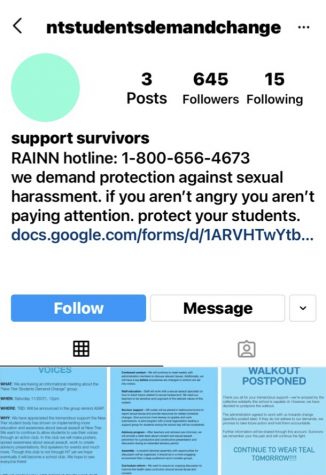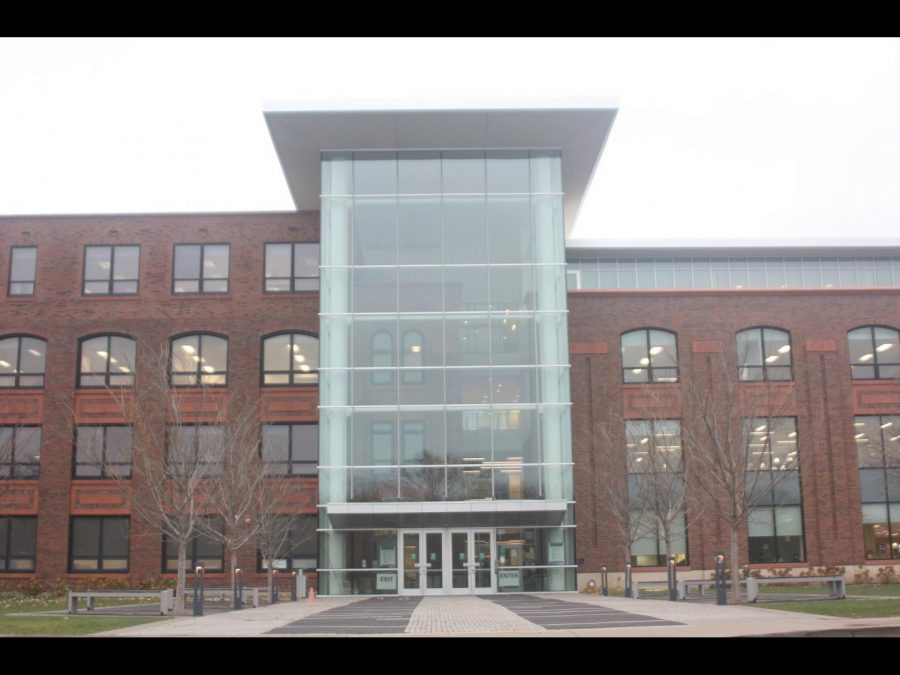Administration enhances curriculum around sexual assault awareness
Senior students advocate for change to educate students and staff
Ali
The implementation of improved sexual assault education within adviseries is vital for ensuring a safe and positive school environment
In response to sexual assault awareness student activists, the administration decided to make changes in kinetic wellness and health classes.
Seniors Tara O’Brien and Mimi Wagner are two of the founders of ‘New Trier Students Demand Change,’ a club that uses student voices to advocate for more sexual education and awareness at school.
The student led group has been meeting with the administration on a weekly basis to discuss intended change in the school around sexual assault awareness.
“Sexual abuse is a huge issue in our world. It is necessary to have these conversations to be more aware of the problem and to be educated on what it is, what to do if it happens to you and how to properly respond to survivors,” said O’Brien.
Wagner said starting sexual violence conversations is important to have the student body educated.
“It’s important that the students know that if they do choose to report and go to a teacher that they will know what to say and what to do next,” said Wagner.
Nikki Dizon, Director of Communications said sexual assault education is already an important part of our curriculum.
“We appreciate student input on how it can be a more effective and impactful part of their experience at New Trier,” she said.
The discussions with administration have led to updates in the sophomore health and the junior and senior KW curriculum. Specifically, units around healthy relationships, sexual assault, and dating violence will be incorporated into the health curriculum.

“All sophomores learn about consent, assault, and sexual violence as part of their health classes. This year, junior and senior KW classes will discuss sexual assault as part of the second semester curriculum,” said Dizon.
O’Brien believes that the health and KW curriculum changes are a good response to their activism, but she would like to see more changes in the future.
“We need to bring these topics into our curriculum more through things like conservations in advisery, awareness about what to do if this happens to you, bringing in professional speakers…etc. There is much more needed to actually create change,” said O’Brien.
Wagner said topics like consent and reporting are important to discuss to understand the trauma survivors face.
“After talking to survivors, I gathered that some feel that if they knew what to do they feel the reporting process wouldn’t have been as traumatizing and would have gone much smoother,” said Wagner.
According to the ‘New Trier Students Demand Change’ instagram, the specific demands include staff education, survivor support, an advisery program, an assembly, and club capabilities throughout the school.
“We continue to advocate for sexual assault awareness by pushing for advisery conversations, speakers being brought into the school to speak to classes, advocating for survivor support groups, making resources more accessible to survivors, and more,” said O’Brien.
O’Brien began advocating when realizing the school’s education on sexual assault was subpar. The main goal was to bring awareness to an issue to show solidarity to survivors.
“We are continuing to work on student-led efforts around this important issue in addition to the work we already do as a school through our curriculum, student services, and professional development for staff,” said Dizon.
In the pilot program of freshman KW1, Dance, Fit Female, there is a new program called RAD, Rape Aggression Defense.
“We have purchased equipment to teach RAD at both campuses and are working to get more certified instructors on our staff to expand the curriculum to more students” said Dizon.
Dizon said sexual assault education is an integral part of the school’s curriculum and she appreciates the students’ input on how it can be more effective and impactful.
“The school is only one part of an overall plan in our community. Our parents and other community groups and resources need to be part of the solution as well. We will advocate as a school to promote discussions in our community about education, awareness, and prevention, recognizing that most incidents of assault occur off campus and outside of school hours,” said Dizon.









































